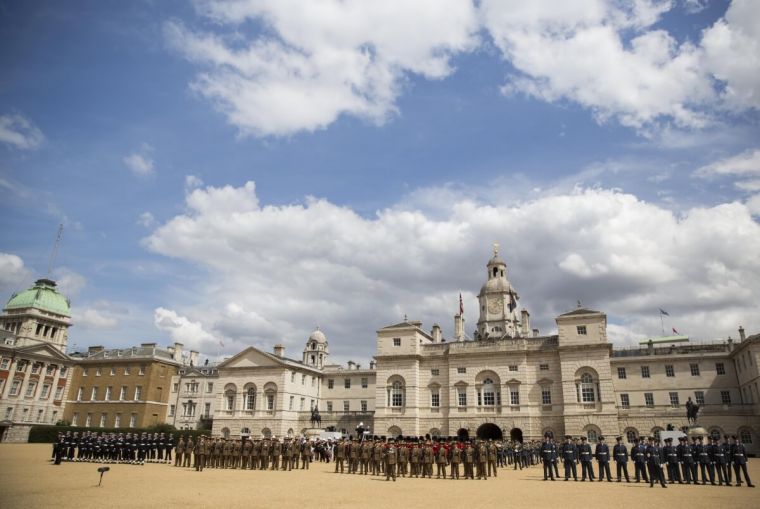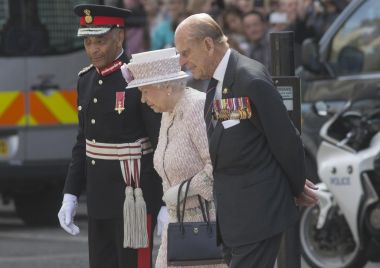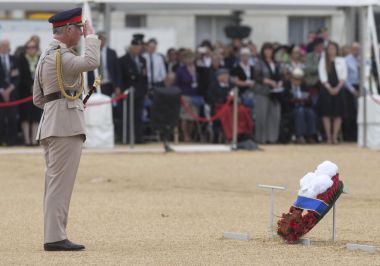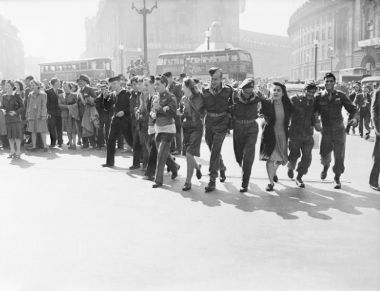Veterans honoured as Queen leads 70th anniversary VJ Day tributes

The Queen has been at the centre of events marking the 70th anniversary of VJ Day, which saw the surrender of Japan following the destruction of Hiroshima and Nagasaki by atomic bombs.
The surrender marked the end of World War II, the most destructive conflict in human history so far.
The Queen and the Duke of Edinburgh attended a service this morning at St Martin in the Fields church in London. Veterans and former prisoners of war were be present, with the Prime Minister and and other dignitaries.

Rev Dr Sam Wells, Vicar of St Martin's, told the congregation people "lost life, limb and liberty that we might know peace".
He said: "The struggles, the suffering and the sacrifice of the war in the Far East are a defining experience in our nation's history. We stand in awe of those who were tried in ways beyond what most of us ever have to go through and greater than many of us can ever imagine. People who lost life, limb and liberty that we might know peace."
The Bishop to the Armed Forces, Rt Rev Nigel Stock, whose uncle was a prisoner of war, delivered the sermon, saying the nation needed to remember "so the forgotten army is not forgotten".
"We remember as we need to be reminded of what the human spirit can achieve," he said.
The Kohima Epitaph, associated with the decisive battle which saw the tide turn against the Japanese, was read by 92-year-old John Giddings who fought in the Far East: "When you go home, tell them of us, and say for your tomorrow we gave our today."

The day's events included a flypast of historic and current military aircraft and a march involving around 50 Far East veterans down Whitehall.
A march from Horse Guards Parade, accompanied by marching bands, was viewed by members of the public who lined the route, many waving Union flags. Wreaths were laid on the Cenotaph in Whitehall.
The date has also been marked in Japan, with Emperor Akihito and Prime Minister Shinzo Abe both making statements expressing remorse and "profound grief" at their country's actions.
The Far East campaign saw the one of the worst defeats in British military history with the capture of Singapore. Tens of thousands of prisoners were taken and treated with extreme brutality, including being forced to work on the notorious Burma railway. However, a successful British campaign in Burma saw the Japanese army halted and driven back.
The war against Japan was responsible for 71,000 British and Commonwealth casualties, including more than 12,000 prisoners of war who died in Japanese captivity.

Vic Knibb, 90, who served in Burma in World War Two and is vice chairman of the Burma Star Association, told BBC Radio 5 live his diary from the time bears a bullet hole from where he was nearly shot.
He said he would be attending the service in London to "remember those prisoners of war and all those that died and gave their lives", and would then be parading this afternoon "to celebrate the fact that we survived and got back home".
Other events will be held around the country, including at the National Memorial Arboretum in Staffordshire, Centenary Square, Birmingham, and Carlisle Castle.











